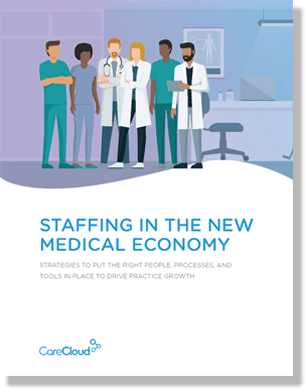It’s long been a given that when it comes to doctor-patient interaction, one of the two parties may not always be completely honest with the other. Patients have been known to fib, in some instances, when certain sensitive questions arise.
I doubt too many dishonest patients feel all that uneasy about lying when asked how often they hit the gym. But how comfortable would they be if they knew the tables were turned, and it was the physician who wasn’t being 100% truthful?
Research shows that it happens rather often. Eleven percent of 1,800-plus physicians recently surveyed by Massachusetts General Hospital admitted to having lied to a patient in the preceding year, and 55 percent said they’d described a prognosis to a patient in a more positive light than was medically accurate.
Is that OK? Or is honesty always the best policy?
Lies From an Honest Place
The study mentioned above didn’t ask docs to report their motivations for lying to patients. Yet, especially when it comes to conferring rosier-than-necessary outlooks, it seems that the dishonesty is often borne from compassion and genuine concern.
Physicians may be trying to maintain the positive attitudes of their patients or provide them with hope by reporting prognoses as less grim than they really are. While it’s hard to quantify the significance of hope to the ill, most healthcare professionals would say it’s important for patients to maintain optimism and faith in their potential for recovery.
“Honesty is almost always the best policy,” says Stephen Hanson, a California-based physician assistant. “But I could see some hypothetical situations where telling the patient something untrue, or being more positive than is warranted, might be the best course of action and make no difference in the treatment of the patient and the outcome.”
And what about prescribing placebos? The entire concept of the “placebo effect” has a lie – or at least an omission – at its core. Does that make their use unsound or unethical?
Not all approve of the placebo’s place in medicine, but many scientific studies (discussed here by the World Research Foundation) have revealed that the placebo effect routinely works about 30% of the time.
Dishonesty Doing a Disservice
Yet, despite the perceived “power of belief” that may allow lying to feel acceptable in certain circumstances, professional standards dictate that physicians should be forthright with their patients.
“Patients who do not get the full story might not be able to make an informed choice about the best course of action for their care,” says Dr. Lisa Iezzoni, a professor of medicine at Harvard Medical School, director of the Mongan Institute for Health Policy at Massachusetts General, and lead author of the doctor-honesty study. “Until all physicians take a frank and open approach to communication, it will be very difficult to enact patient-centered care more broadly.”
In a national telephone survey conducted by Rasmussen Reports, 79% of Americans said they trust their doctor. Violating that trust, even in well-intentioned ways, diminishes the conviction of the doctor’s role.
Plus, not all physician lies are backed by benevolent concerns for patients. In Dr. Iezzoni’s study, approximately one-third of physicians did not completely agree with disclosing serious medical errors to patients, and nearly two-fifths did not completely agree that they should disclose their financial relationships with drug and device companies to patients.
When motives of self-protection, such as a fear of being sued, cause dishonesty, lying is unambiguously unethical.
Communication at the Core of Care
Upholding the certitude of the physician’s ultimate medical authority requires that the lines of communication between doctors and patients be wide open.
“The [doctor-patient] relationship is a human interaction, and physicians are human too,” says Dr. Iezzoni. “They don’t want to upset their patients, they don’t want their patients to look unhappy or burst into tears. But they also need to be professionals, so they need to tell themselves that if there is a difficult truth they need to tell their patient, they need to figure out a way of communicating that effectively.”
Even in the case of medical error, forthright communication and straightforwardness can ease the repercussions of a troubling mistake.
A close friend of mine with Crohn’s disease was on the receiving end of a life-threatening medical error at age 19, when her physician poked a hole in her colon during a routine colonoscopy. Despite the fact that the mistake put her in Intensive Care for weeks, my friend’s family didn’t sue because the doctor took complete responsibility and stayed involved in her care throughout recovery.
While some doctors clearly feel that, at times, lying is called for, honesty rarely has poor side effects. Dishonesty, however, may be more likely to cause adverse consequences.
When do you think it’s OK for doctors to be less than truthful?



